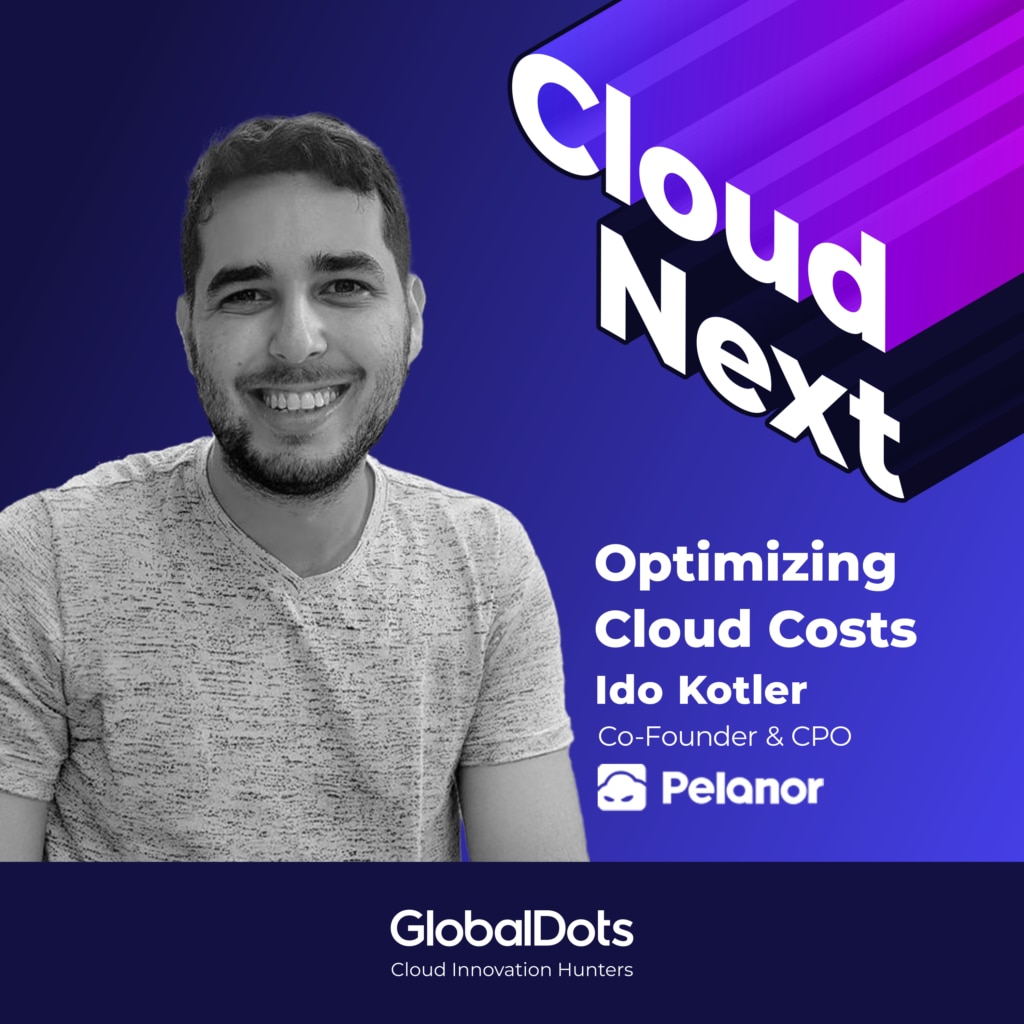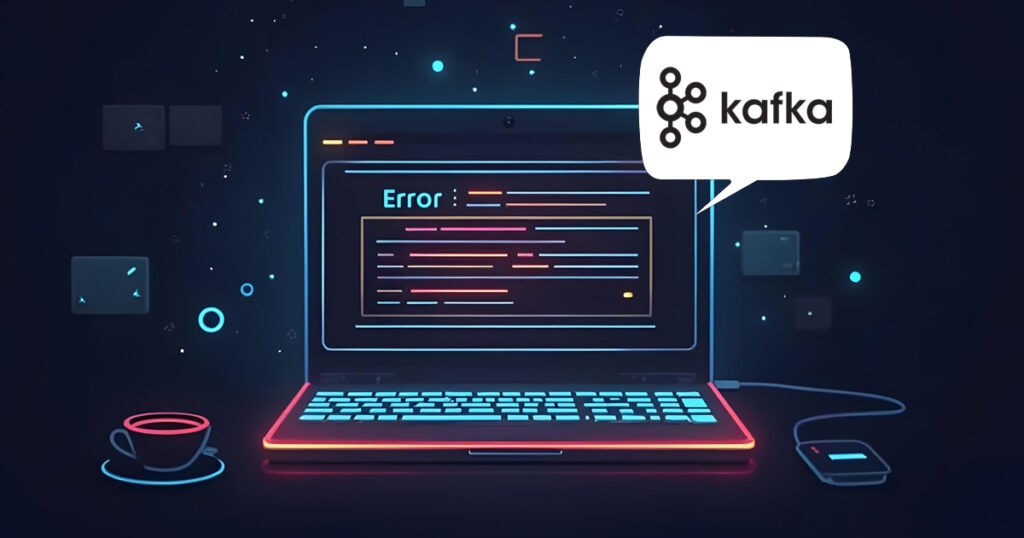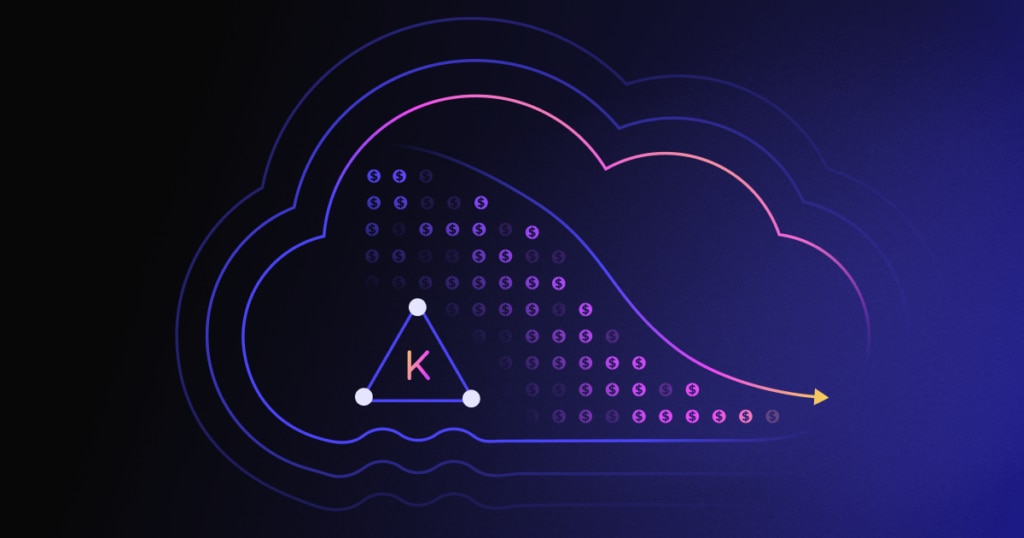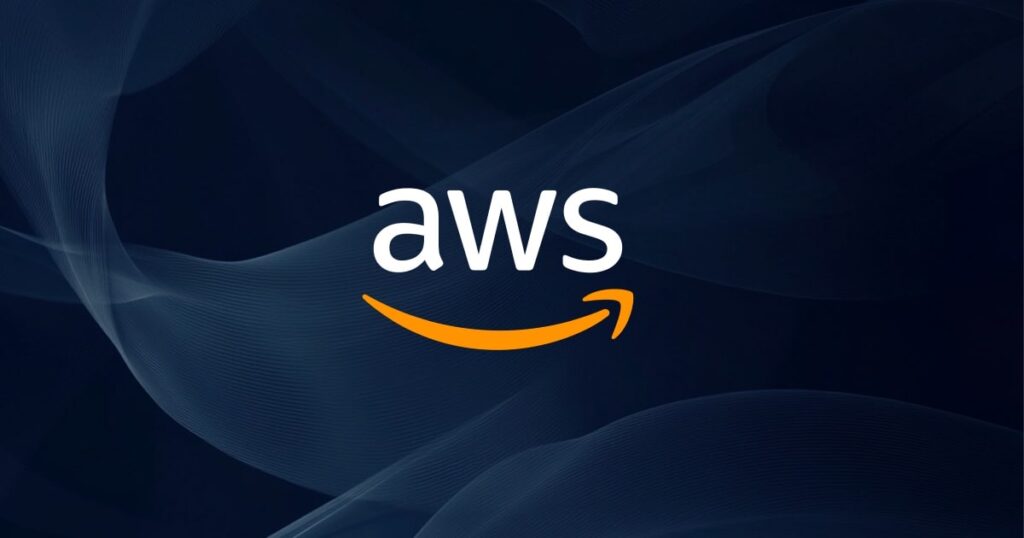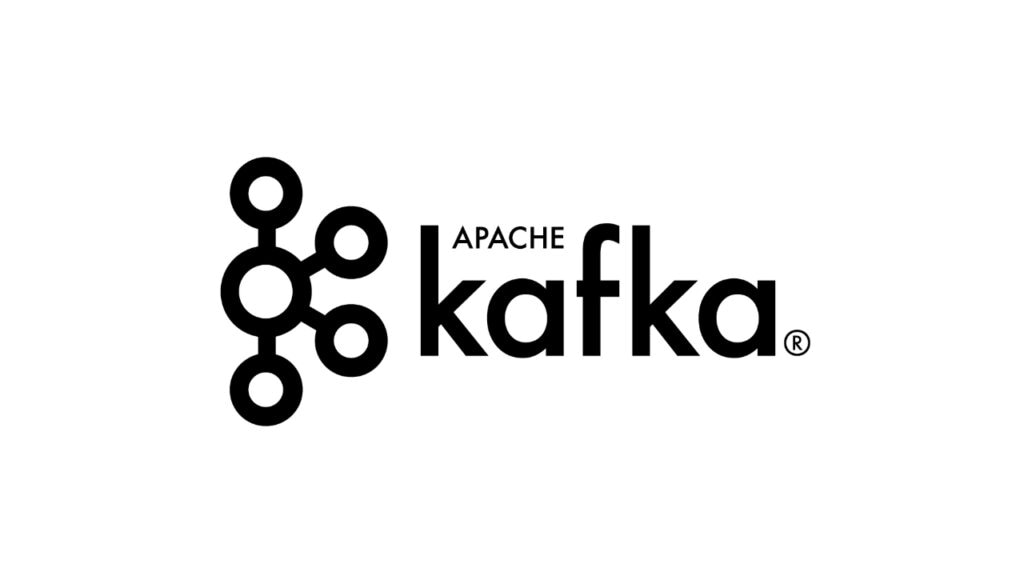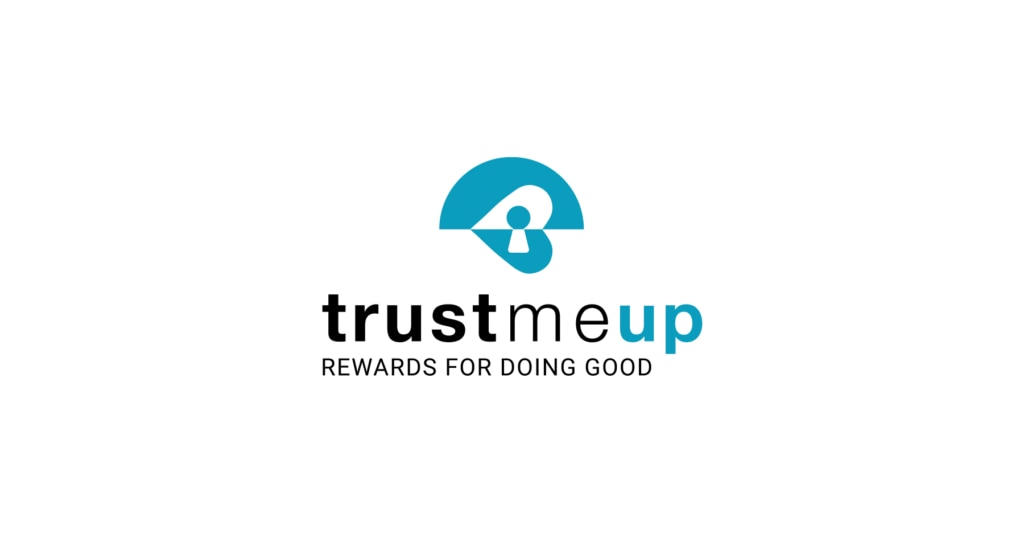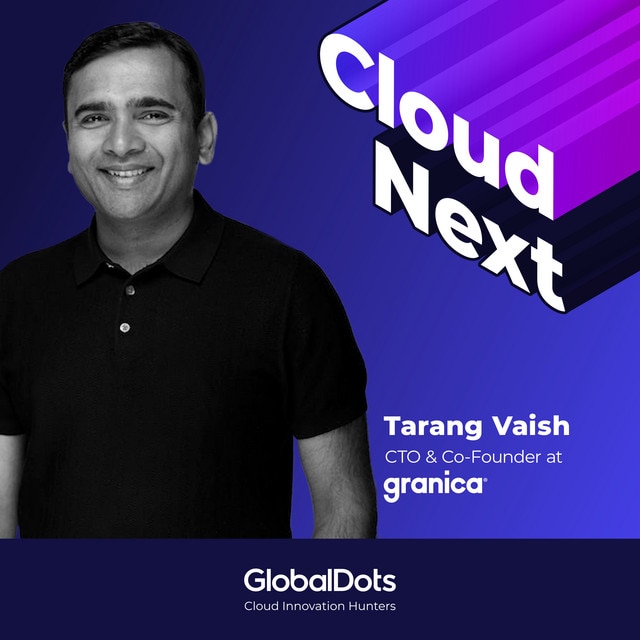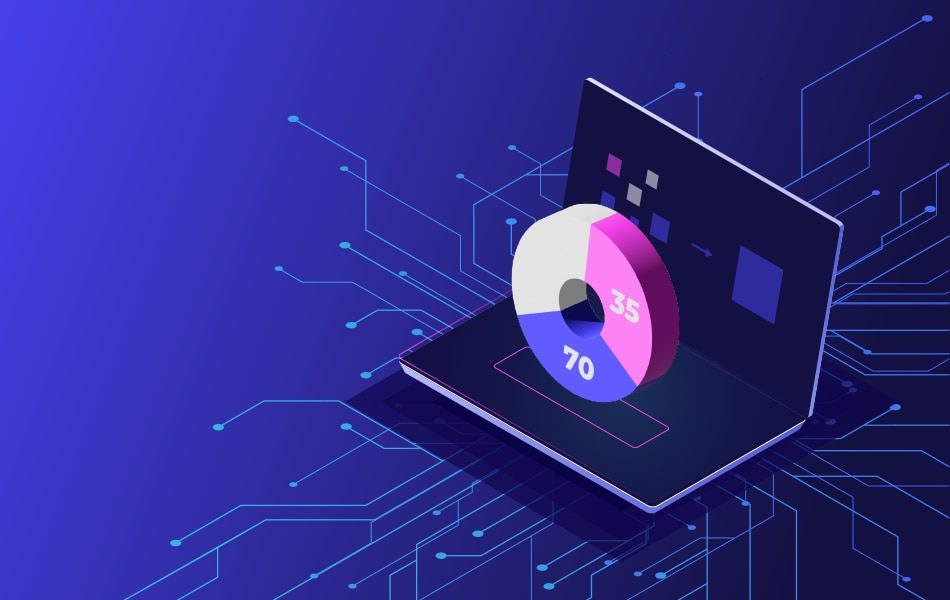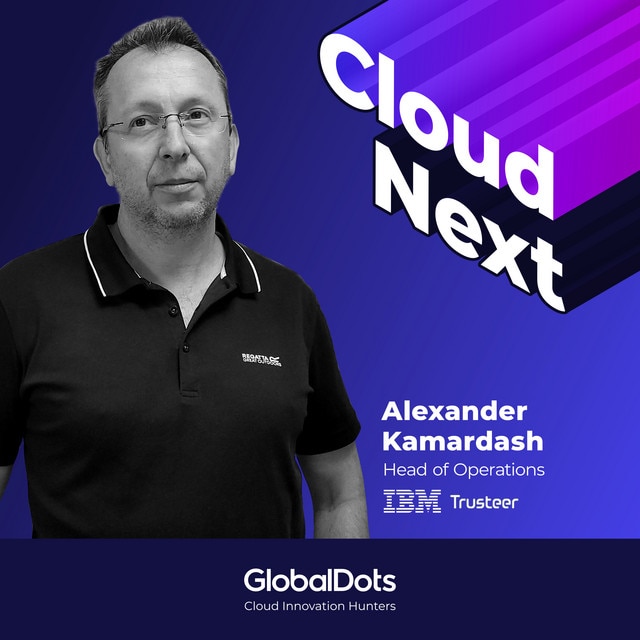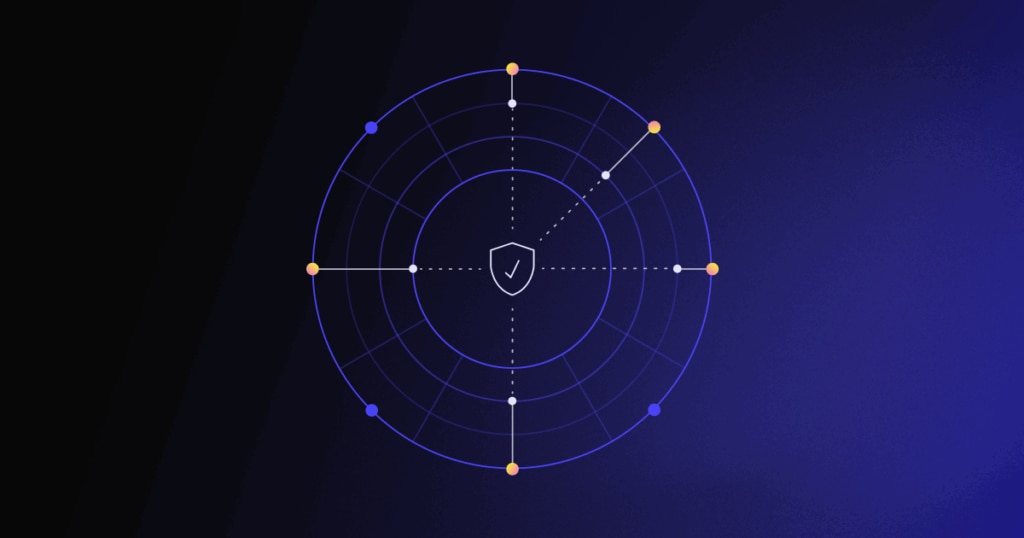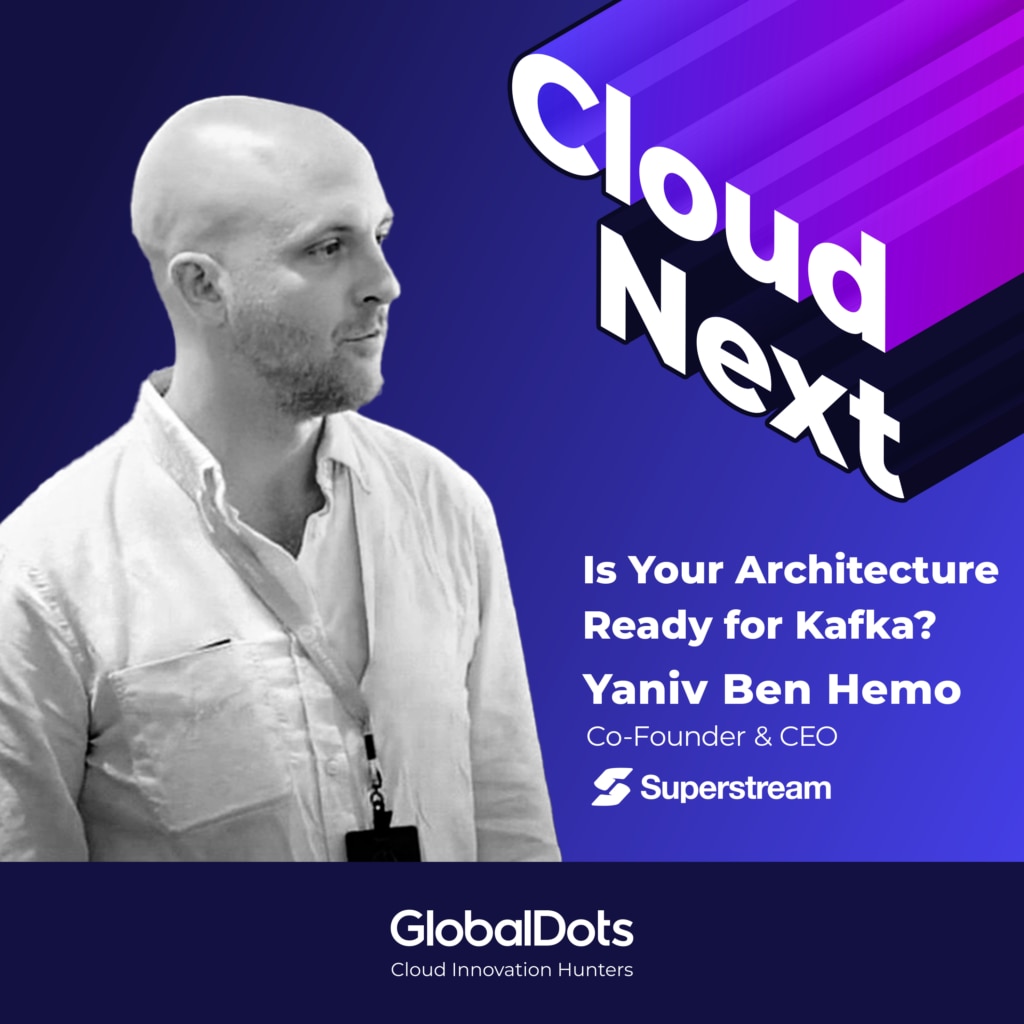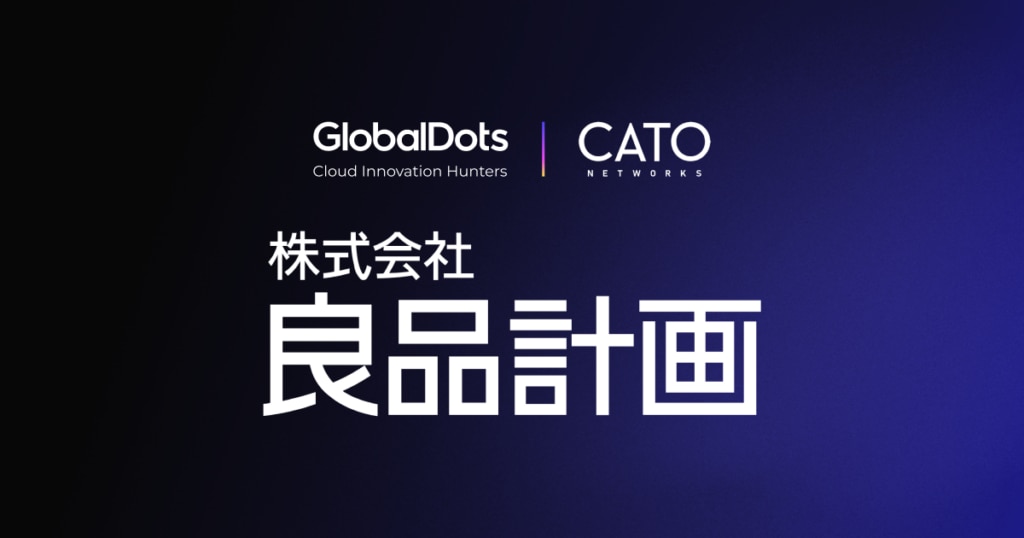This transcript was generated automatically by AI. If you find any mistakes, please email us.
Announcer
0:00:00
Hello everyone, you're listening to Cloud Next, your go-to source for cloud innovation and leaders insight, brought to you by GlobalDots.
Ganesh
0:00:15
FinOps is a critical practice that every cloud-focused organization needs to master. However, as cloud environments grow more complex, so do the challenges associated with managing costs efficiently. The landscape is no longer just about cutting costs, it's about strategically optimizing every aspect of your cloud usage using automation and AI where possible.
Ganesh
0:00:37
I'm Ganesh The Awesome, Solutions Architect at GlobalDots, and today we're joined by Stephen from ProsperOps, a company at the forefront of automating cloud cost management. Stephen's journey through various roles in the industry has given him a unique perspective on FinOps.
Ganesh
0:00:51
Stephen, before we start, what should people know about you? Tell the listener a little bit about yourself.
Steven
0:00:56
Hi everybody, thanks for having me Ganesh. My name is Stephen Dwyer, Senior FinOps Specialist at ProsperOps. I am based out of Northern Virginia, so I like to joke that I'm out of USC1. But I got my start, especially formative years in cloud, working AWS Enterprise Support. And so I was helping customers starting in 2015, understand their bill, understand where their costs were coming from.
Steven
0:01:22
And at the time, a lot of people were rushing to cloud, and they didn't necessarily know what they were doing on cloud. And so I helped a lot of customers understand where these costs were coming from, and it really morphed into not just understanding where their costs were coming from, but understanding how they could cut those costs.
Steven
0:01:42
So since those years, I've focused solely on cost optimization and more recently the rate optimization side of the house with ProsperOps. But yeah, I worked as a fit ops analyst at a managed service provider after I left AWS.
Steven
0:02:00
And then I sat in the practitioner seat at an autonomous trucking company prior to coming to ProsperOB. So I've seen all sides, both from the consulting and practitioner side of the house, as well as the cloud service provider side of the house. So happy to talk about my experience today.
Ganesh
0:02:17
Great. And it sounds like you've got a good breadth and depth of services under your belt. We've had a few FinOps guests on the podcast and I myself would consider myself in the FinOps realm, having done it for sort of six or seven years now. It doesn't appear that anybody set out to be a FinOps specialist. Every person, including myself, fell into it accidentally or because there was a gap that needed filling and you just happened to be the right size to fill that gap or whatever.
Ganesh
0:02:52
You mentioned that your career has taken you through various roles and that's that's sort of shaped where you're at today, but what advice would you give professionals looking to build a similar career and to get where you are? Yeah, so whether they're on the finance side
Steven
0:03:05
or the engineering slash architecture side of the house, just if it interests you, you know, study FinOps, study the framework that there's so much information on these days. It will help you build your own practice within your role and if your company currently doesn't have a FinOps role, it'll certainly enable you to fight for creation of one. The savings are oftentimes overlooked if there is not a FinOps role. So I think it's very important to study that
Steven
0:03:42
and then push for a position if there's not already one in your current company. Otherwise, if you're just starting out in school, you're gonna have trouble fighting FinOps courses in academia. So definitely branch outside,
Steven
0:03:57
look at the online resources available to you and just take it from there.
Ganesh
0:04:04
It's an interesting point that you can kind of create this role for yourself. I believe that in only tier one companies I see have, mostly only tier one I should say, only have a FinOps dedicated role. It's one of those things that has a trickle down effect where the rest of the companies, the smaller companies, have to sort of catch up to the fact and probably there's an entry barrier point. Obviously if you're not spending so much on the cloud, it doesn't make any sense to hire
Ganesh
0:04:34
somebody that costs more than they can ever possibly save you. But once you reach that magic inflection point, it makes sense to have a person inside there. You mentioned about the academia part and I do find it quite interesting that there is such that gap between the academic, because you mentioned yourself it's not going to be there, but for the people who are looking to get into this field and you know there's FinOps foundations, things that you can follow and there are various YouTube channels and whatever else, but just from your professional opinion, what do you
Ganesh
0:05:11
think can be done to bridge the gap between real-time industry needs and what's going on in academia?
Steven
0:05:17
Yeah, and as you mentioned, you know, FinOps is a relatively newer concept within the last five to 10 years. And it kind of emerged out of a necessity from lack of a bridge between finance and IT. So academia, from what I've viewed, is they are focusing on traditional IT, such as infrastructure
Steven
0:05:44
management, network management, system admin, that kind of specialization. But I haven't seen where they've dove into cloud. And the fact that there's so many resources available is kind of startling, that they don't even mention it in their curriculum. And so I think it's important that either extracurricular or self-study, maybe a special project focused on cloud, could help introduce cloud to the schools.
Steven
0:06:19
As cloud continues to grow and as companies start to move off of traditional infrastructure or perhaps moving out of their own data centers, there's going to be a higher demand for FinOps specialists. And it may happen organically, but I don't feel that it's happening quickly enough.
Ganesh
0:06:37
And I think we're going to see probably a shortage of FinOps engineers. I think it's, you know, the industry always grows to fill these holes eventually. But I think in the initial hype cycle of it, we're going to see a total lack of FinOps engineers. On the landscape in general, we've, well I personally have seen a few iterations of tools now. So we have the kind of, we call them like Gen 1 tools, which were the kind of cloud health, cloud checker type tools, which maybe people are familiar
Ganesh
0:07:11
which is something like AWS Cost Explorer on steroids. And a lot of that was just about visualizing data, being able to assign data to different business units and etc. And then some basic alerts. We see things are getting more sophisticated now, specifically around automated processes.
Ganesh
0:07:34
So it's not just alerts, but we're actually looking at really doing AI automation inside your cloud in order to save money. But from your perspective, can you walk us through some of those transformations and what it looks like today?
Steven
0:07:51
Absolutely. When I was at AWS, they would say we're an engineering company, not a reporting company. And so they somewhat lagged with their homegrown tooling or cloud-specific tooling. So visibility became a huge issue. So you did see those Gen 1 cost optimization tools. The second generation, they started to get
Steven
0:08:17
some autonomous recommendations based off of CloudWatch and other metrics that could be observed for sub-utilization. And so, what I noticed was that a lot of recommendations were being created in the Gen 2 tooling, but it still required somebody to drive that initiative. Engineers were less prone to log into a tool like that and act upon them, or they could
Steven
0:08:44
simply say, that's not a viable recommendation. I'm optimized and provisioned for peak performance. You know, even if they didn't have scalability or auto scaling enabled, they were provisioned for max workload. And so 90% of the time it looked like sub-utilization, but there is a lot of subjectivity to any recommendation that engineers will certainly have feelings about so those tooling
Steven
0:09:16
Even gen 2 tooling there was not a lot of action being taken with those recommendations And I would say gen 3 is not just recommendations, but actions Autonomous actions being taken on behalf of the customer base. We still don't see many automation of the customer base. We still don't see many automation regarding the engineering side of the house because like I said there's a lot of subjective provisioning of those resources
Steven
0:09:49
that engineers simply don't trust somebody coming in and changing resource types because production is at risk. You certainly don't want an outage because an automated platform change your instance type without the best judgment or metrics to follow. However, there are some very objective optimizations that can take place with these Gen 3 tools, such as the rate optimization and making sure
Steven
0:10:19
that you have commitments or discount instruments that match your usage as the usage evolves over time. These commitment instruments do require one or three-year commitments with the cloud service provider. However, they do build in some flexibility, whether it's automation that makes the discount instrument apply against
Steven
0:10:40
anything or automation that makes flexibility through the availability of an exchange to ensure that those discount instruments match your usage as it evolves?
Ganesh
0:10:53
Great points. And yeah, I definitely saw that myself in the industry as well, particularly around the what we would call the Gen 2 type tools. And they were mostly recommendation-based and there were some that people were happy to do. If you're talking AWS, there was a classic one. I mean, still is a classic one.
Ganesh
0:11:17
If you're using GP2 type disks, you can migrate to GP3, you can do it on the fly. It costs less money and you get a more performant disk out of it. There's no reason not to do it.
Ganesh
0:11:28
You can get a script or even some of these tools would even run that for you, just go and convert all my GP2 to GP3. You couldn't get a pushback from engineering for that because it was non-impacting. I did it with someone who had tens of thousands of disks,
Ganesh
0:11:45
and nobody noticed that we were doing it in the organization. Now, there's a few easy wins like that. And don't take internet egress that comes straight out of the S3 if you can put cloud front in front of it and that's like a hack of understanding how AWS charges you for egress charges And a few of those kind of recommendations that were easy to take but for sure, you know, right sizing a box or
Ganesh
0:12:15
Downsizing a database and all these kind of things were always off the map essentially So you can only ever take like a quarter of the advice really from these tools and overall they weren't that successful I would say. As someone who currently tries to sell those and did try and sell those in the past, Uptake was very poor on those. And as you say, we didn't really get, we didn't get great traction until we met these fully
Ganesh
0:12:46
AI automated tools that perform actions inside your account that are guaranteed to be non-impactful, like you say, the sort of around the reservations and the commitments. But with so many tools in the market, I would say customers find it pretty overwhelming to pick the right solution or make a decision on them. What advice would you give to somebody starting their FinOps journey to avoid getting lost in the complexity of vendors?
Steven
0:13:11
I think the tool of choice is also going to depend on the maturity of your organization's embrace of FinOps. For example, when I worked at the autonomous trucking company, I had no budget as a FinOps team because it was a brand new team. They didn't want to pour a lot of money into what they didn't understand. but self-hosted tooling, such as the AWS Kudos dashboard,
Steven
0:13:39
which over time, the cloud service providers are building solutions that pretty closely compete with some of the more expensive third-party tools. So definitely explore the cloud-specific optimization tools that are available to you. And then if you want more robust reporting, more robust recommendations, explore a third party.
Steven
0:14:09
You know, and if you want automation, you're really going to have to go third party unless you do some homegrown, you know, DIY solutions, which are not going to perform as well as some of the third party options available because they've been under development for years already. And they've solved some of the challenges with the back-end handling of certain aspects of cloud. But look at the value. Look at what it's returning to your business in terms of savings and use that to
Steven
0:14:42
justify what you're going to purchase or commit to either short-term or long-term. And that solution may evolve over time. And Cloud is constantly changing. And so you want to pick a service that's evolving as quickly as the Cloud is.
Ganesh
0:15:04
It makes perfect sense. And it's quite interesting, the build versus buy, which is, it comes with everything basically you know you could you could build everything if you want but you know most companies are they're not software development companies they've evolved to solve a particular problem and they're from the salesman's perspective obviously I'm I think that
Ganesh
0:15:32
they that people are crazy if they want to build their own solutions I mean we many years ago when we were first introducing running AWS workloads on Spot instances and very nice Spot orchestration platforms now NetApp, or got bought by NetApp. At the time I would show people this software and it was very advanced
Ganesh
0:15:55
including high availability nodes that were balanced for you underneath clusters and all this kind of stuff. And the argument would often come back, why wouldn't I just build this myself? And I would quite often say to people,
Ganesh
0:16:10
you know, if you wanna go and build that yourself, please do, but why not just use the tool while you're doing that? Because it's gonna take you six or 12 months before you really trust your tool can be used in production. Use this now, save the money.
Ganesh
0:16:28
There's no commitment to keep using it in the future. And I think there's always that kind of, you meet up against that typical engineering mindset that something doesn't look that complicated and we could just build it ourselves. And from that side, I would roughly encompass that as the kind of misconceptions that customers have.
Ganesh
0:16:56
But with those misconceptions in mind, when customers are first starting their approach to FinOps, how can they better align their expectations with reality?
Steven
0:17:07
I think customers come in thinking that everything is pretty basic, especially if it's an area that they've never explored before. We've had customers, Prosper Ops has had customers that introduced to Prosper Ops, went off, tried to DIY or build versus buy, realized how complex the process actually is
Steven
0:17:32
to do it effectively, and then came back. They've realized their time was better used doing other FedOps or cost optimization tasks rather than managing what we do using automation. Another common misconception is that you have to do engineering optimization or right-sizing, changing infrastructure, etc. before you can do rate optimization or before you can commit
Steven
0:17:58
to discount instruments. And that's just not true when you have automation behind it and great flexibility through the discount instruments themselves. So we recommend doing them in tandem. Definitely save while you're using what you're using today, but then make sure that it's flexible enough to absorb those engineering changes as they occur. You know, ProsperOps, we don't only monitor as frequently as the cost of use report is published. We monitor the engineering changes as they're occurring.
Steven
0:18:32
So even though, you know, there might be 8 to 12 hours between per publishing cadence on AWS specifically, you don't have to wait if you're using automation to ensure that you have the highest coverage possible without overcommitment or waste.
Ganesh
0:18:49
It's a great insight. And we didn't really touch on ProsperOps. We should mention what you do and what your innovations are. So you mentioned that you're able to provide data more quickly than the CURR report can, but can you unpack what ProsperOps do and some of your other innovations?
Steven
0:19:06
ProsperOps since 2018 has offered autonomous discount management for AWS Compute. There have been a lot of customers asking to also do database and analytics reservations and cost optimization. So we have, in the past year, expanded our service offering to cover RDS, ElastiCache, Redshift, OpenSearch, and MemoryDB.
Steven
0:19:36
We also see many customers, and a growing number of customers, that are multi-cloud. And so we find it important to not only cover AWS, which has historically had significant market share over the other three, but today we offer early access for GCP as well. And so a lot of companies are using Google Cloud Compute Engine, and we want to ensure that we can cover them effectively
Steven
0:20:07
and maximize savings across their entire Cloud footprint. We do have plans to expand the offering as well. We're constantly iterating and looking to provide solutions to a growing number of customers.
Ganesh
0:20:22
definitely firmly puts you in that kind of Gen 3 category. And, you know, I'm a big fan of it, essentially, and not particularly Plusprox, but all of these Gen 3 type tools, because you're not asking for something. You're not asking for, to migrate your Kubernetes cluster from one controller to another. You're not asking to shut down databases
Ganesh
0:20:52
in order that you can restart them. You're not asking to change your file format from ext4 to btrfs. You know, lots of these things that just, first of all, engineering hate because it's just extra work.
Ganesh
0:21:09
And even if they love it and they want to do it, it never really bubbles over the priority line. There's always a front-facing product that needs fixing, or there's a new feature that needs putting in. These long-tail engineering projects for FinOps are really only approached by much louder organizations with huger budgets.
Ganesh
0:21:30
I would say that for anybody listening who's looking into those kind of tools. Don't assume that you have to do loads of engineering work, you know, that you can make enormous savings off the bat just by plugging in one of these Gen 3 AI tools or machine learning tools, and they will come back and say, we can save you XYZ. Do you want to save XYZ? You say yes, and it goes and saves it, which sounds like too good to be true, but that's actually where we're at the moment with these tools, which is pretty mind-boggling given that it's only been two or
Ganesh
0:22:13
three years prior that we were just looking at essentially fancy visualization tools of what was going on.
Steven
0:22:21
Can I make one comment on that as well? Don't wait until your migration is complete or until you're right sized. So many companies will use a service such as the map credits from AWS in my experience, and they will run knowing that they have discounted usage, but they'll do so ineffectively. And so we can stretch or you can stretch your map credits further by having commitment-based discounts on your usage while you're rightsizing and as the dust is settling from a migration.
Steven
0:22:59
It's too late when your credits run out and then all of a sudden you have sticker shock and then you react. So get ahead of that. Start looking into optimization opportunities day one.
Ganesh
0:23:12
Oh yeah, wise advice. And I would also, to follow on from it again, I meet people who you're offering them a cost optimization solution that works off the bat. And then they say, yeah, yeah, but first of all, we know that we've got scaling problem XYZ, or we've got monolith problem ABC. Let us deal with that first. And then we'll come back to that because we know we can reduce the costs which you know nine times out of ten doesn't make sense nine times out of ten you're better to click the start saving button
Ganesh
0:23:50
and then these tools will align once you downscale or once you retire this monolith it doesn't really matter is just there's money on the table that you're losing and you're you're putting it on the never never for no good reason really, but that's a, I feel like there's a, that's a kind of political, emotional thing happening there that, you know, if a sales guy wants to introduce a product to you that says it's going to save money and you should take it now, now, now, then naturally your inclination is going to be, And funnily enough, around this sort of Gen 3 tooling,
Ganesh
0:24:26
which has been in the world of global dots and some of our customers for a good few years now, the first time we introduced this, every single time the answer came back,
5
0:24:38
looks good, looks good,
Ganesh
0:24:40
but basically sounds too good to be true. And that was it. Like the response was like, it sounds too good to be true. And it took a lot of case references and it took a lot of building up of this portfolio. And now everybody knows that it's not too good to be true
Ganesh
0:25:02
and they're missing out on the party. And now it's, you know, I think we're moving to the point where probably a good percentage of people have got one of these tools in place now. So it's about picking the best of breed tools as opposed to not having a tool for this at all, which sort of leads us quite nicely back to what you do.
Ganesh
0:25:23
So, you know, lots of people are struggling with this, with this, this cost optimization. Some people are doing it manually. Some people maybe have an AI tool. have a tool for that already, but what makes ProsperOps' approach to automated cost management different and what makes you stand out?
Steven
0:25:44
Yeah, so our approach, I'd say the first differentiator is the fact that we are purely autonomous. We have monitoring 24-7, 365, and not only are we monitoring, but our algorithms are calculating changes and affecting changes autonomously. One key example is when we were on Thanksgiving break in the US, eating turkey, prepping for re-invent in Vegas, we had a lot of retail customers spiking for Black Friday
Steven
0:26:20
Cyber Monday. And it didn't need humans in the office to ensure that we covered them for those usage volatility spikes. And so that is a key differentiator that ProsperOps, I believe ProsperOps has.
Steven
0:26:33
And then also we have another tool. We come across a lot of organizations that struggle moving from a decentralized commitment management strategy to centralized, right? As they build a fit-ups team, it makes sense to have a central model.
Steven
0:26:52
But accounting practices make it challenging to cost allocate across many different organizations and business units. ProsperOps also built based off of customer feedback and intelligence show back feature, which helps redistribute the cost of commitments
Steven
0:27:08
back to the accounts and business units that actually benefited from them. So looking at the savings and making sure you're saving optimally is great, but many companies still need to allocate, charge back, show back, etc. And there's a lot of work to be done there as well left for these Gen 3 tools to figure out. You know, you're working with different personas outside
Steven
0:27:36
because outside of the general IT world, you're working with finance that doesn't understand why you might be getting an extra invoice daily compared to just monthly. And so we wanna ensure that that roadblock or speed bump is overcome sooner than later.
Ganesh
0:27:55
Yeah, I feel like it's probably not too far in the distant future before. Everybody is familiar with one of these tools. I don't expect, I don't expect in two or three years time that anybody's doing this process manually. I think it's almost nobody will be doing that manually, I'm very sure. We're coming towards the end of the episode and we always like to ask our guests what was dubbed the DeLorean question.
Ganesh
0:28:36
But if you can go back in time and give yourself one piece of professional advice, what would
4
0:28:41
it be?
Steven
0:28:42
Yeah, professional advice would be looking at something, doing something that you enjoy earlier on. There's a funny story behind how I got into cloud and it's literally growing up in an area that had a lot of cornfields just subtly turning into data centers. And so be observant, understand what's going on in the world around you. Prior to this, I worked in marketing.
Steven
0:29:09
I wish I had gotten into cloud much earlier than I had. So just be observant, understand what it is that excites you, and chase it.
Ganesh
0:29:20
That's very, very philosophical advice. And I tend to think if everybody followed everything that they were excited in, there wouldn't be any FinOps engineers. So as beautiful as that advice was, it goes completely counter to there being any FinOps people in the world because I'm sure nobody as a child sort of dreamed of cost-optimizing clouds. So it goes.
Ganesh
0:29:48
My truthfulness is relentless and gets me in hot water frequently. Wonderful and really great to have you on the show. Thanks so much for your insights. Any closing remarks or anything you'd like to say?
Steven
0:30:04
No, thank you for having me. I look forward to hearing responses from this webinar and definitely reach out if you'd like to ask any questions.
Ganesh
0:30:13
Great, thank you so much and cheers for that. This episode was produced and edited by Daniel Ohana and Tom O'Morvinson, sound editing and mix by Bren Russell. I'm Ganesh The Awesome and if you're ready to deep dive and start transforming the way you approach cloud practices and cyber security strategies, then the team and myself at GlobalDots are at your disposal. We are cloud innovation hunters and we search the globe
Ganesh
0:30:39
looking for the future tech solutions so we can bring them to you. We've been doing it for over 20 years, it's what we do and if I don't say so myself, we do pretty well. So have a word with pretty well. So have a word with the experts, don't be shy, and remember that conversations pretty well. So have a word with the experts, don't be shy, and remember that conversations
are always for free.


